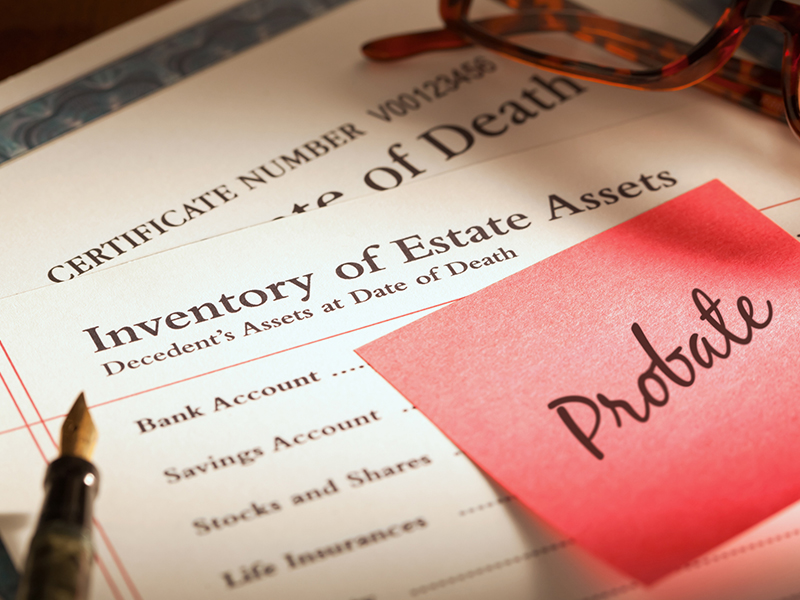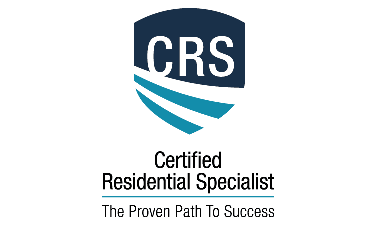
The death of a loved one brings on an emotionally challenging time, and navigating the legal intricacies of probate can add another layer of stress. In Virginia, as in all states, the probate process involves the orderly administration of a deceased person’s estate, which includes identifying, valuing, and distributing their assets. A critical, yet often overlooked, aspect of this process is the preservation of personal property.
Personal property encompasses a vast array of tangible items, from cherished family heirlooms and valuable jewelry to everyday household goods, vehicles, and digital assets. Ensuring these items are properly secured, maintained, and accounted for is paramount to fulfilling the deceased’s wishes, satisfying creditors, and ultimately distributing the estate fairly among heirs. This comprehensive guide will detail the essential steps required to preserve various types of personal property in a Virginia probate case, offering practical advice for executors and concerned family members.
The Executor’s Fiduciary Duty: A Foundation of Preservation
The executor’s fiduciary responsibility absolutely requires property preservation in probate. In Virginia, the executor (also known as the personal representative) is the individual appointed by the court to administer the estate according to the deceased’s will (if one exists) and Virginia law. This duty requires the executor to act with the utmost honesty, loyalty, and prudence in managing the estate’s assets. Failing to adequately preserve personal property can expose the executor to personal liability and lead to disputes among beneficiaries.
Therefore, the preservation process begins with the executor’s proactive and meticulous approach from the moment they assume their role.
Initial Steps: Securing the Deceased’s Residence and Belongings
The immediate aftermath of a death often involves securing the physical environment where the deceased resided. This is the first and most crucial step in preserving personal property.
- Secure the Premises: If the deceased lived alone, the executor should promptly secure the residence. This means changing locks if necessary, ensuring all windows and doors are locked, and setting up an alarm system if available. This prevents unauthorized access, theft, or damage to property.
- Identify and Secure Valuables Immediately: Before a comprehensive inventory can be conducted, identify and secure any highly valuable items, such as:
- Jewelry: Place in a secure safe deposit box or a personal safe.
- Cash: Deposit into an estate account as soon as an Employer Identification Number (EIN) for the estate is obtained from the IRS.
- Financial Documents: Gather and secure bank statements, investment account information, deeds, titles, and insurance policies.
- Firearms: If firearms are present, ensure they are unloaded, secured, and stored in compliance with all local and federal laws. If the deceased had a substantial collection of firearms, consider consulting with a gun trust attorney.
- Art and Collectibles: Photograph these items and consider moving them to a secure, climate-controlled storage facility if their value warrants it.
- Prevent Damage from Utilities: Ensure that utilities like water, electricity, and heating/cooling are maintained to prevent pipes from bursting, mold growth, or damage to sensitive items. However, be mindful of costs, as these will be paid from the estate. If the property will be vacant for an extended period, consider winterizing the plumbing if appropriate.
- Forward Mail: Arrange for mail to be forwarded to the executor’s address to prevent theft of financial information and ensure important correspondence is received.
Comprehensive Inventory and Documentation
Once the initial security measures are in place, the executor must undertake a thorough inventory and documentation of all personal property. This is a meticulous process that requires patience and attention to detail.
- Detailed Inventory List: Create a comprehensive list of all personal property. This list should include:
- Description of Item: Be specific (e.g., “Mahogany dining table with six chairs,” “1998 Toyota Camry, VIN [VIN Number],” “Diamond solitaire ring, 1 carat”).
- Location: Where the item was found.
- Estimated Value: While a professional appraisal will come later for significant items, an initial estimate can be helpful.
- Condition: Note any existing damage or wear.
- Identifying Marks: Serial numbers, unique features, etc.
- Photographs and Video: Take clear, well-lit photographs or a video of every item, especially valuable ones, and their condition. This serves as invaluable evidence in case of damage, loss, or dispute.
- Appraisals for Valuable Items: For items of significant value (e.g., antiques, fine art, jewelry, rare collections, vehicles), obtain professional appraisals from qualified and reputable appraisers. In Virginia, the court may require appraisals for certain assets for estate tax purposes and fair distribution. This is crucial for accurate valuation and to ensure equitable distribution among beneficiaries.
- Document Digital Assets: In today’s digital age, personal property extends beyond physical items. Document all digital assets, including:
- Online accounts (social media, email, banking, investment platforms, cloud storage).
- Digital photos and videos.
- Cryptocurrency.
- Subscription services.
- Loyalty programs. The executor will need to identify how to access these accounts, which often involves navigating terms of service and potentially obtaining court orders. Consider using a digital asset management service if the deceased had a complex digital footprint.
- Vehicle Documentation: For vehicles, boats, or other titled property, locate the titles and registration documents. Ensure proper insurance coverage is maintained until the vehicle can be sold or transferred. Consider parking vehicles in a secure location.
- Perishable Goods: Dispose of perishable food items and anything that could attract pests or deteriorate quickly.
Ongoing Maintenance and Protection
Preservation is not a one-time event; it’s an ongoing responsibility throughout the probate process.
- Insurance Coverage: Review the deceased’s existing insurance policies (homeowner’s, renter’s, auto, valuable articles). Ensure that coverage remains active and adequate. If the property is vacant, the existing homeowner’s policy might become invalid or require a “vacant property” endorsement. Consult with the insurance provider immediately. If new insurance is needed for specific valuable items, obtain it.
- Regular Inspections: If the residence is vacant, conduct regular inspections to check for any issues like leaks, pest infestations, or security breaches.
- Climate Control: For sensitive items like artwork, musical instruments, or electronics, maintain appropriate climate control (temperature and humidity) in the storage location.
- Cleaning and Upkeep: While deep cleaning may not be immediately necessary, basic upkeep to prevent deterioration (e.g., wiping down surfaces, vacuuming) can be beneficial, especially if the property is being prepared for sale.
- Storage Solutions: If items cannot remain in the deceased’s residence, or if the residence needs to be sold, arrange for secure and appropriate storage. This could be a professional storage unit with climate control and security features, or in some cases, with a trusted family member, provided proper documentation and agreement are in place.
Special Considerations for Specific Types of Personal Property
While the general principles apply, certain types of personal property require specific attention.
- Vehicles:
- Maintain current registration and insurance.
- If not being driven, disconnect the battery to prevent drain.
- Consider putting it on a battery tender.
- Regularly start and move the vehicle to prevent tire flat spots and fluid stagnation, or arrange for someone to do so.
- If the estate plans to sell the vehicle, prepare it for sale (cleaning, minor repairs).
- Collections (Stamps, Coins, Sports Memorabilia, etc.):
- Handle with care to avoid damage.
- Maintain proper storage conditions (e.g., acid-free containers for stamps, humidity control).
- Obtain specialized appraisals from experts in that field.
- Consider professional dealers or auction houses for sale to maximize value.
- Firearms:
- Strictly adhere to all state and federal laws regarding transfer and storage.
- Ensure they are unloaded and stored in a locked gun safe.
- Consider temporary transfer to a licensed dealer for storage if the executor is not comfortable or legally able to possess them.
- Legal advice is highly recommended for firearm distribution.
- Perishable or Live Assets (e.g., Livestock, Plants):
- Arrange for immediate care and feeding.
- Determine if they need to be sold quickly or transferred to a new owner who can provide proper care.
- High-Value Art and Antiques:
- You will need to demonstrate the history of ownership, referred to as Document Provenance.
- For transport and storage, consider hiring specialized art handlers .
- Ensure adequate insurance coverage.
Dealing with Disputes and Distributions
Even with the most meticulous preservation efforts, disputes can arise.
- Communication is Key: Maintain open and transparent communication with all beneficiaries about the status of personal property, the inventory, and the appraisal process.
- Fair Distribution: Once debts and taxes are paid, and assuming the will provides direction, the executor will distribute the personal property. If there is no will, or if the will fails to address specific items, Virginia’s intestacy laws will govern the distribution.
- Family Agreements: For items without specific bequests, encouraging family members to agree on who receives certain items can prevent disputes. Consider a “picking system” or a lottery for less valuable items.
- Court Intervention: In cases of intractable disputes, the executor may need to petition the Virginia Circuit Court for guidance or approval regarding the distribution of specific assets.
The Role of a Virginia Probate Attorney
While this guide provides a comprehensive overview, the nuances of Virginia probate law and the complexities of specific estates make the guidance of an experienced Virginia probate attorney indispensable. A knowledgeable attorney can:
- Advise on the executor’s legal duties and responsibilities.
- Assist with obtaining Letters Testamentary or Letters of Administration.
- Guide the inventory and appraisal process, ensuring compliance with Virginia law.
- Help navigate complex issues such as digital assets, firearms, or business interests.
- Provide strategies for resolving disputes among beneficiaries.
- Ensure all legal deadlines and filings are met.
- Minimize the executor’s personal liability.
Preserving personal property in a Virginia probate case is a significant responsibility that requires diligence, organization, and a clear understanding of legal obligations. By taking proactive steps to secure, inventory, document, and maintain the deceased’s belongings, executors can fulfill their fiduciary duty, honor the deceased’s legacy, and facilitate a smoother, more amicable distribution process for the beneficiaries. While the task may seem daunting, approaching it systematically and, crucially, seeking professional legal counsel, will ensure that personal property is protected and ultimately passed on according to law and the wishes of the deceased.




